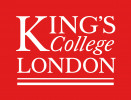© Pint of Science, 2025. All rights reserved.
Our speakers will talk about the latest gadgets in healthcare, from how we can cross new surgical frontiers with the most cutting-edge technology, to innovate cost-cutting solutions and bring better care to more people.
3D Printing for Healthcare
Kawal Rhode
(Professor of Biomedical Engineering)
3D printing is a manufacturing method that constructs an object one layer at a time using a variety of methods and materials. It is a long-standing technology but has recently become accessible due to widespread and low-cost availability of 3D printers and materials. Printers can now be purchased for as little as £99. The applications are endless. This talk will cover the basics of the technology and illustrate how 3D printing is being utilised within Guy's and St. Thomas' NHS Trust and King's College London to have an impact on patient care.
Epilespy Navigation (EpiNav™): Computer assisted planning and guidance of epilepsy neurosurgery
Rachel Sparks
(Lecturer of Surgical and Interventional Engineering)
Neurosurgery is a delicate procedure, involving maximising the treatment of diseased brain regions whilst sparing healthy regions involved in cognitive function. Computer software tools can aid in clinical decision making by providing patient specific interactive 3D models of brain anatomy. I will talk about my research apply biomedical engineering principles to plan and simulate neurosurgical treatments.
Connect-Create-Change: Frugal Innovations in MedTech
Prashant Jha
(Professor of Affordable Medical Technologies)
The developed world has never faced so many financial constraints, and frugality is the need of the hour. I will share with you my model of training and how we have used frugal thinking to remove zeroes from the price of multiple medical devices. I will share my vision for building a Frugal Health Innovations Hub fro low-cost high-impact medical devices. Over the last decade using these principles, my group and I have built multiple successful devices aimed at improving care for the many, not the few.
Map data © OpenStreetMap contributors.

